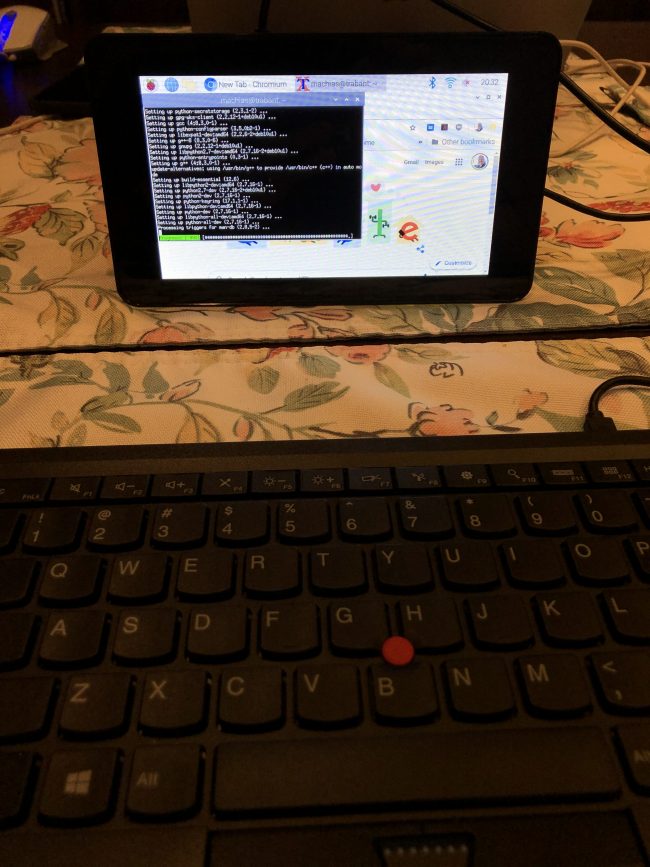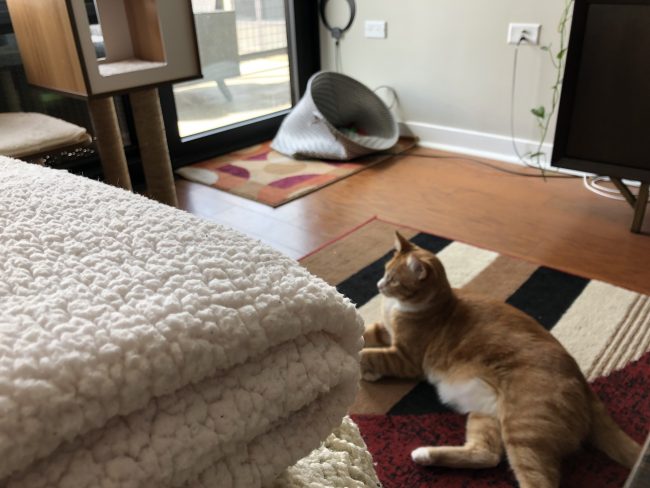
During the downtime of the pandemic I’ve been playing around with my Raspberry Pi setup. A few weeks ago I picked up a 7-inch touchscreen and case. The Raspberry Pi is mounted in the case with the touchscreen, so it’s all one compact unit. Eventually this will become a home automation control station and be mounted on the wall in our front hallway. The display will also provide the current weather and information on the nearby CTA ‘L’ Line. We’ll know if we have to run or walk downstairs to catch the train when it’s prudent to go outside again.
I’m able to do this because the CTA provides this data for developers to include in their applications if they so wish. I can also use data from Accuweather for my app. Because the data is open and available.
I believe most data should be open and available.
Now, while there’s a perverse side of me wouldn’t mind having a national database of who is attached to the license plate number of the person that just cut in front of me on the expressway, I understand there are limits and common sense barriers around many personal bits of information. I’m not saying I want all the data available to the world but I am saying I want data the furthers the common good.
Last week, popular weather app developer Dark Sky announced they were purchased by Apple and that Dark Sky and its data set were now property of Apple. With this change of ownership, Apple will be discontinuing the Android version of Dark Sky and then will discontinue the availability of Dark Sky’s API. This means that any other app dependent on the data collected and shared by Dark Sky, for example, the Weather Line app, now needs to find a new source of weather data if they wish to continue to power their application.
I have an issue with this.
While I have loved Apple hardware and most software experiences over the data decades, one thing I have never been completely comfortable with is the concept of a “walled garden”. Apple seems to be doing more and more of this approach as time goes on. FaceTime is only available to Apple users. iMessage is only available to Apple users. And now Dark Sky data will only be available to Apple users.
Apple touts this approach as part of their security measures. Live inside the walled garden and you’ll be safe from bad actors on the ever growing Internet. Ad companies will not bother you and your data won’t be mined.
This is only true if you have *only* Apple developed products on your device and Apple doesn’t decide to share data with any third parties. It’s a step in the right direction when it comes to data privacy, but at the same time it’s a step in the wrong direction. Because when you look at the price of Apple’s iDevices and compare them to similar devices from other companies, you’ll find that Apple’s devices can be quite pricey.
In today’s rapidly declining economic environment, who has time to drop a boat load of change just to live inside a “walled garden”?
When it doesn’t compromise privacy or personal safety, data should be free to flow between varying devices, different ecosystems, and distinct “walled gardens”. This is one aspect of Google and Microsoft’s applications I actually like, they’re ubiquitous. Google searches work just fine on any device and Microsoft has made strides to make Office available on just about everything. I can create a Word Document in a web browser on a Linux computer and open that document on a Windows computer and then share with a person using a Mac.
For the world to move forward we need to be cooperative with our data. I would love to see Apple change their mind about Dark Sky data but I don’t have a lot of hope.
In the meanwhile, my little Raspberry Pi setup, all told put together for less than $100, will display weather information from Accuweather.
And it will be awesome.
